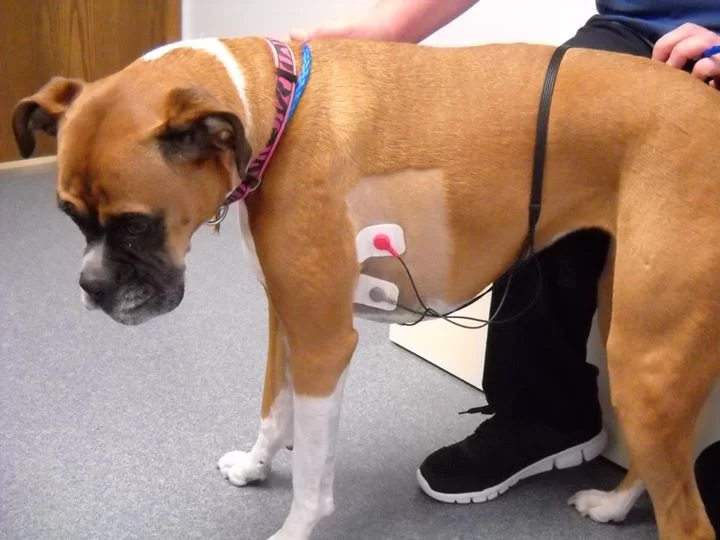Pet ECG Services: Why Heart Monitoring is Essential for Your Pet's Health
- 1. Understanding Pet ECG Services
- 2. Why Pet Heart Monitoring is Important
- 3. How ECG Can Help Diagnose Heart Issues in Pets
- 4. What to Expect from Pet ECG Testing
- 5. Tips for Maintaining Your Pet's Heart Health
1. Understanding Pet ECG Services
Pet ECG (electrocardiogram) services are crucial for monitoring your pet’s heart health. Just like humans, pets can suffer from heart diseases that may go unnoticed until it's too late. An ECG for pets records the electrical activity of the heart, which helps veterinarians identify any irregularities or signs of heart disease early on. Whether you have a dog, cat, or other pet, an ECG is a non-invasive procedure that provides valuable insights into your pet's heart function.
For example, when Sarah's cat Luna was diagnosed with a heart murmur, her vet recommended an ECG to monitor Luna's heart activity. The results helped guide the treatment plan, which included medication to manage Luna's condition and prevent further complications.
2. Why Pet Heart Monitoring is Important
Heart disease in pets is more common than many pet owners realize. Conditions like heart murmurs, arrhythmias, and congestive heart failure can develop gradually and often go unnoticed. Regular heart monitoring through ECG services can help detect these issues early, allowing for timely intervention. Early diagnosis of heart conditions can significantly improve the outcome and quality of life for your pet.
For instance, when Jack’s dog, Max, began to show signs of lethargy and shortness of breath, his vet performed an ECG. The results revealed that Max had early-stage heart disease, which led to an effective treatment plan that included medications and lifestyle adjustments, ultimately extending Max's life by several years.
3. How ECG Can Help Diagnose Heart Issues in Pets
An ECG is a valuable diagnostic tool that helps veterinarians detect various heart conditions. Some of the common heart issues that ECG can identify include:
- Arrhythmias: Irregular heartbeats that can cause fainting or fatigue.
- Heart murmurs: Abnormal sounds caused by turbulent blood flow, often linked to heart valve problems.
- Cardiomyopathy: A disease of the heart muscle that can impair pumping efficiency.
- Congestive heart failure: A condition where the heart can't pump enough blood to meet the body’s needs.
By identifying these issues early, an ECG can allow for more effective treatment options, which can improve your pet’s heart health and overall quality of life. For example, Bella, a senior dog, was showing signs of fatigue. After an ECG, it was discovered that she had an arrhythmia, which was treated with medication, allowing Bella to regain her energy and lead a normal life again.
4. What to Expect from Pet ECG Testing
If your pet needs an ECG, the process is straightforward and non-invasive. Here’s what you can expect during the testing:
- Preparation: The vet may ask you to bring your pet in a relaxed state. No fasting or special preparations are usually required.
- During the test: Electrodes will be attached to your pet’s skin, typically on the chest or legs, to record heart activity. The procedure is painless and takes just a few minutes.
- Results: The results are reviewed by the veterinarian, who will discuss any findings with you. If any irregularities are detected, further tests or treatments may be recommended.
For example, when Emily’s dog Rocky had an ECG, the test only took about 10 minutes, and the vet was able to spot early signs of an arrhythmia. With this knowledge, Emily could make informed decisions about Rocky’s care and treatment options.
5. Tips for Maintaining Your Pet's Heart Health
Once you have a clear understanding of your pet’s heart health through ECG services, it’s important to continue providing the best care. Here are some tips for maintaining your pet’s heart health:
- Regular vet check-ups: Regular visits to the vet for check-ups can help detect potential heart problems early.
- Proper diet: Feeding your pet a balanced diet can help prevent obesity and other heart-related conditions.
- Exercise: Regular physical activity helps maintain a healthy heart and prevent conditions like heart disease.
- Avoid stress: Keeping your pet’s environment calm and stress-free can have positive effects on their overall heart health.
For example, Charlie, a golden retriever, was put on a heart-healthy diet and a regular exercise routine after an ECG revealed early signs of heart disease. His owner noticed improvements in his energy levels and overall vitality.
If you’re concerned about your pet’s heart health, consider scheduling an ECG service today. For more information or to book an appointment, visit Hidden Brook Veterinary and ensure your pet’s heart health is in good hands.










